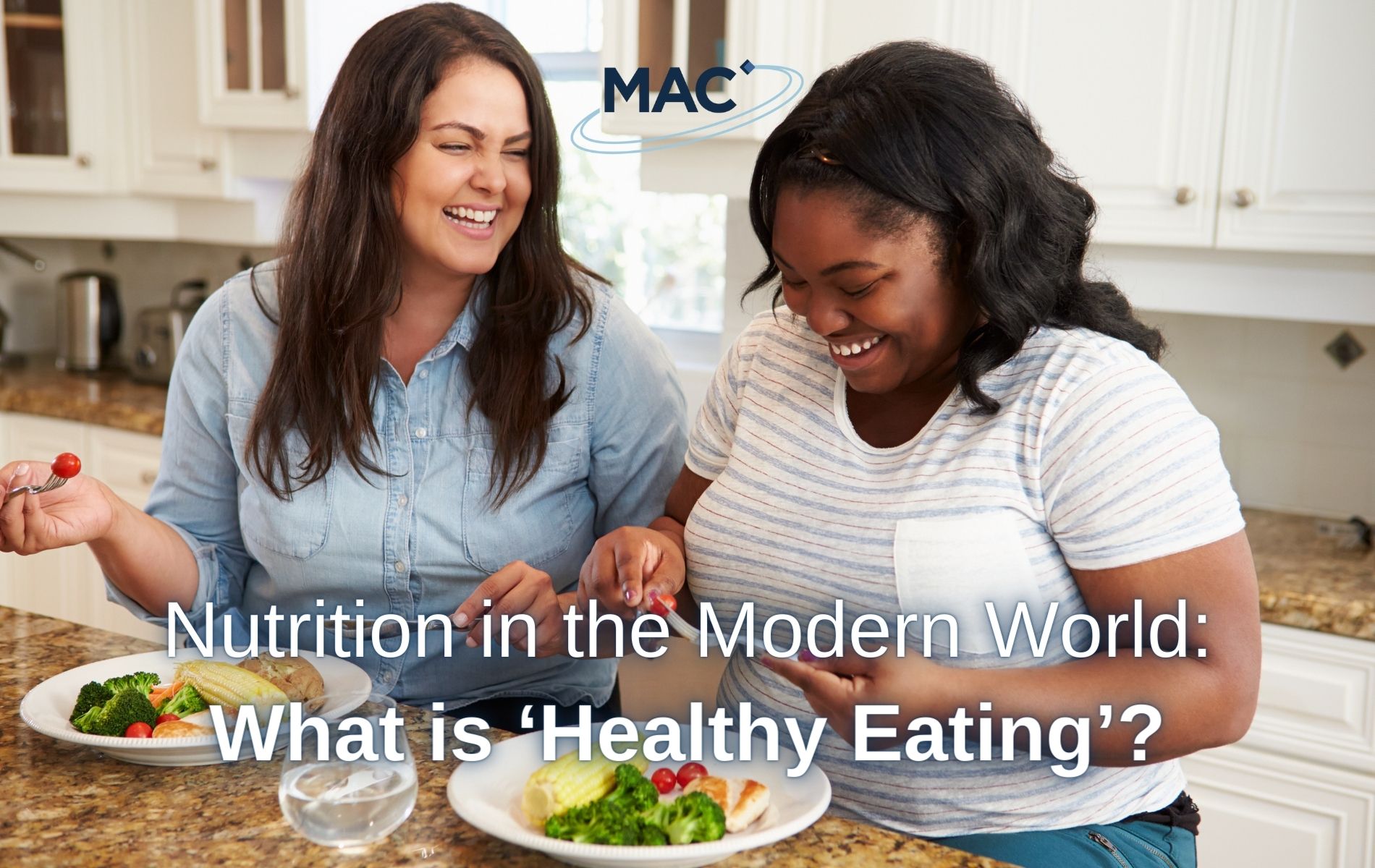This Healthy Eating Week, we are thinking about how to be healthier and how opinions about food and nutrition are perpetually changing. As science and medicine continue to advance, our understanding of what is ‘healthy’ also shifts. Far from the meat and vegetable-based meals of the 1950s, modern-day nutrition is a hotbed of hidden sugars and fats. Getting adequate sustenance in an ever-busy world is challenging, but what does ‘healthy’ mean?
What is a healthy diet?
The public’s understanding of nutrition has transformed in the last decade. The introduction of meat and dairy alternatives to the mainstream and a rise in the transparency of nutritional information have meant that people are considering new ideas about what is healthy.
There has been a shift in recent years towards personalised nutrition plans tailored to the specific needs of the individual and accounting for gender, age, weight, physical activity level, and medical conditions. As a result, we have started to move away from a one-size-fits-all approach and instead consider how eating plans can be modified to fit individual needs1. However, a healthy, balanced diet is still considered to be rich in fruit and vegetables with well-proportioned levels of nutrient-dense carbohydrates, protein, salt, and fats2.
What are the benefits of healthy eating?
Though the rise of delivery apps has made it easier than ever to get fast food, it’s important to remember the many ways you can benefit from a healthy diet. Regular consumption of vegetables and fruit can significantly lower your risk of obesity, heart disease, stroke, diabetes, and certain types of cancer (colorectal cancer, in particular). Conversely, a diet high in salt, saturated and industrially produced trans-fats can increase your risk of heart disease and stroke3.
Tips for healthy eating
The internet is filled with information and guidance on how to eat healthier, but it can often be confusing and contradictory. Here at MAC, we have pulled together five tips for healthy eating to help dull the noise:
1. Don’t skip breakfast
If you are trying to lose weight, you may skip breakfast to help your goal. However, eating breakfast restores glycogen and stabilises insulin levels, and going without it leads to a drop in blood sugar. This can leave you feeling tired, irritable, and overly hungry, which may lead to over-eating4. Instead, try introducing a high-fibre, low-sugar/fat/salt breakfast to your diet, such as wholegrain lower sugar cereals with semi-skimmed milk.
2. Drink plenty of water
Make sure you include plenty of fluids in your daily routine to ensure you do not get dehydrated. It’s recommended that you drink six to eight glasses of water a day, but this can vary based on temperature and your activity and exercise levels. Some benefits of drinking enough water include improved skin health, body temperature regulation, and prevention of kidney damage5.
3. Eat plenty of fruit and vegetables
Fruits and vegetables provide crucial vitamins and minerals that help keep us healthy; the NHS recommend that you get ‘5 A Day’. The way that you eat them does not matter – they can be fresh, frozen, canned, dried or juiced6. Try adding them to your meals such as putting a banana on your breakfast cereal, or substituting them into your diet, for example, carrot sticks instead of your afternoon snack.
4. Plan your meals around high-fibre carbohydrates
High-fibre or ‘slow-release’ carbohydrates help you to feel fuller for longer and should make up around one-third of your nutrition7. Try to include at least one with every main meal to build a healthy plate, such as potatoes with the skin on, brown rice, or wholewheat pasta.
5. Remember the importance of moderation
While some may find it easy to completely cut out foods like sweets, chocolate, and fizzy drinks, this is not true for everyone. Removing these foods from your diet totally and abruptly may not work long-term. Consider moderation alongside incremental substitutions, which may be more effective if going cold turkey is a daunting prospect8.
Taking part in a clinical trial
Healthy Eating Week is the perfect time to ask why healthy eating is important. Embracing a healthier diet rich in omega 3, and maintaining a healthy weight, plays a huge role in overall health; it can help to reduce your risk of developing serious health conditions such as type 2 diabetes, knee osteoarthritis (OA), and non-alcoholic steatohepatitis (NASH) or fatty liver disease.
If you are living with one of the above health conditions and are interested in helping to improve treatment options, visit our current trials webpage to find out if we are running a clinical trial that may suit you.
If you are eligible for one of our trials, you may receive financial reimbursement for your time and commitment. You will also receive travel expenses (if travel to one of our clinics is required) and a full health check-up from our specialist team.
1Fresh Fitness Food – How Advice on Eating Habits has Changed Over the Years
2NHS – Eating a balanced diet – NHS
3WHO – Healthy diet
4Future Fit – The Nutritional Effects of Skipping Breakfast
5Medical News Today – 15 benefits of drinking water and other water facts
6NHS – Why 5 A Day? – NHS
7NHS – 8 tips for healthy eating – NHS
8MedPage Today – Breaking free from sugar addiction: Why cold turkey doesn’t work




